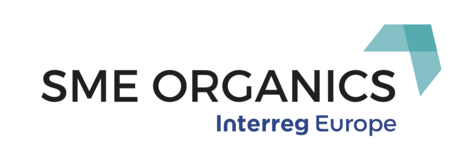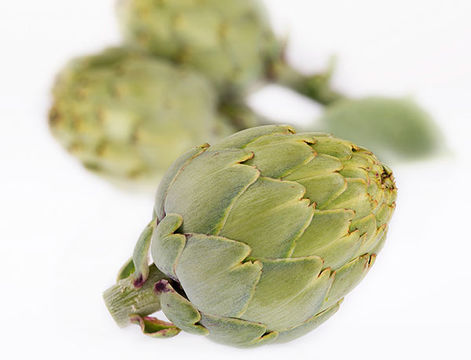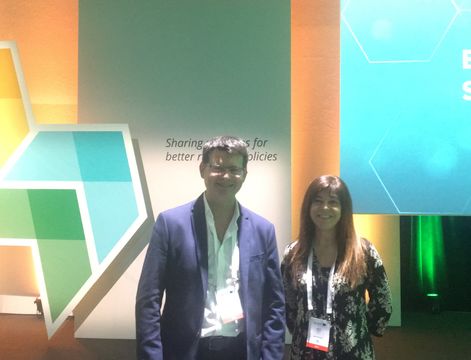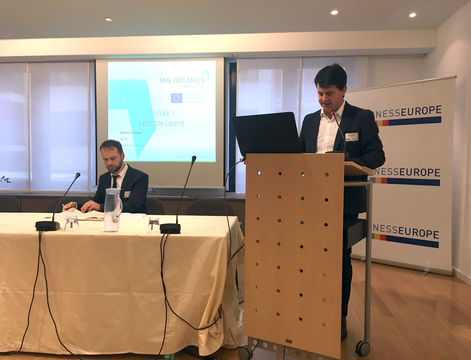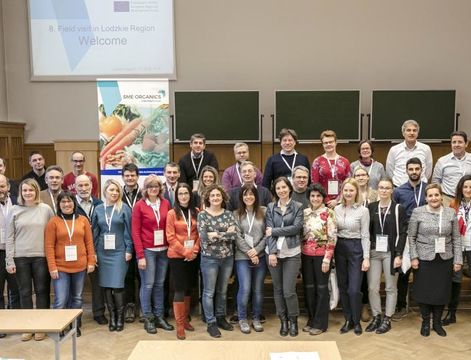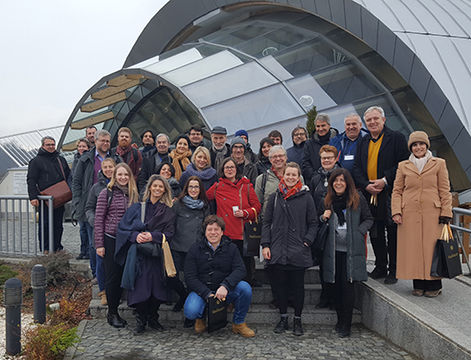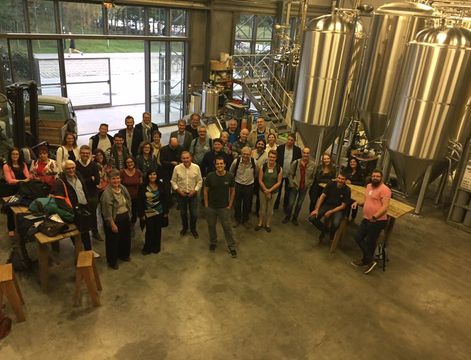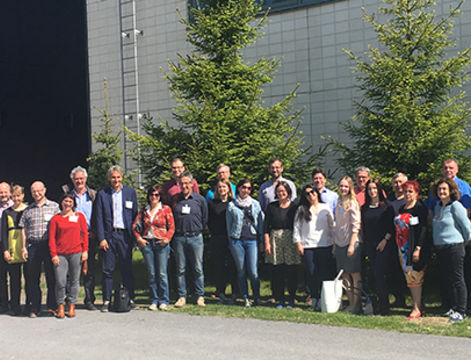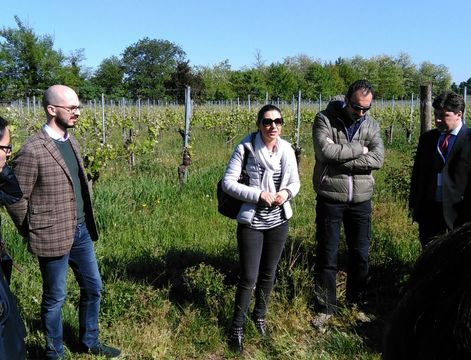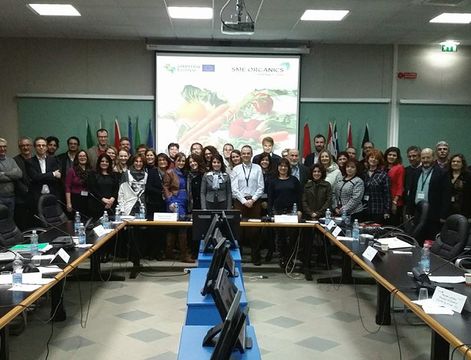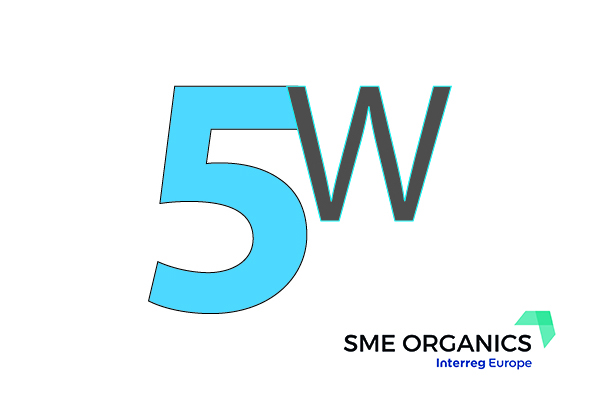Organic food and farming have grown beyond a niche, but there are discrepancies across Europe in terms of its overall development. So that more regions can benefit, the Interreg Europe programme has awarded funding to SME ORGANICS, a new European Cooperation project. Within the project the 8 participating regions will work and share experiences on specific measures to support the competitiveness of SMEs of the organic sector by developing regional organic action plans.
This initiative is a welcome opportunity to boost organic action plan development, especially from a regional perspective. Recent research published by IFOAM EU in a new report entitled Organic Action Plans: A Stakeholder Guide shows that there were plans in place in 17 countries of the 31 studied in EU-28 and EFTA, with regional plans in 5 of these countries at the end of 2015. Whilst some action plans are still under development or up for renewal, the numbers demonstrate that there is still huge potential for the organic sector in partnership with national and regional policymakers to develop and implement plans at both national and regional level. One of the key aspects of SME ORGANICS – a recommendation of the study - will be the involvement of the most relevant stakeholders in the development of organic action plans in each of the participating regions from the initial stages, i.e. the preliminary step of conducting regional diagnosis for the organic sector.
This strong partnership approach is reflected in the multi-stakeholder composition of SME ORGANICS consortium which brings together 11 different partners representing 7 EU regions and a Swiss Canton. This includes:
Regional governments and development agencies
• Navarra Government’s Dept of Rural Development, Environment and Local Administration and Navarra’s development Agency - SODENA (lead partners) (ES)
• Lodzkie Region Marshall's Office (PL)
• Puglia Region Managing Authority (IT)
• North-West Regional Development Agency (RO)
Organic food and farming and enterprise bodies
• International Federation of Organic Agricultre Movements (IFOAM EU) (advisory partner) (BE)
• INTERBIO Aquitaine/Limousin/Poitou/Charentes (FR)
• Union of the Chambers of Commerce, Industry, Agriculture and Crafts of Lombardy (IT).
Research Institutes
• CIHEAM MAIB Mediterranean Agronomic Institute of Bari (IT)
• Seinäjoki University of Applied Sciences (South Ostrobothnia-FI)
• FiBL Research Institute of Organic Agriculture (Aargau-CH)
SME ORGANICS Kick-off Meeting
The aim of the kick-off event was to bring together the partners and have a common understanding of the overall project. Over 20 participants have been welcomed by the lead partner SODENA and the Government of Navarra to the official launch of SME ORGANICS.
On 18 May, the morning session started with presentations of all the involved regions sharing their regional contexts with a focus on the organic sector, including challenges and opportunities, the main stakeholders and the current market and policy environment for the development of organic food and farming in a national and regional context. The lead partner then shared with the participants a general overview of SME ORGANICS highlighting the main activities, outputs, results and the work plan. During the afternoon session, the partners analysed and agreed on the methodology to conduct the regional diagnosis of the organic sector in each region, based on the work developed by a core group of partners (Government of Navarra, IFOAM EU and FiBL). This diagnosis will allow understanding the status-quo of the organic sector in each region, and collect the needs of the SMEs that should be formulated in terms of policy measures in a further step.
In the coming months regional stakeholders will be engaged in supporting the development action plans starting with this preliminary step of conducting a regional diagnosis of the organic sector in their respective countries. This will include workshops (one per region) focusing on the regional diagnosis. Some of them will also participate in the first interregional field visit, which partners have scheduled at the beginning of September 2016 in Aargau, Switzerland. In addition, regional dissemination events to promote the project and its activities will be organised in each participating region.
The second day took the form of a stakeholder-policymaker workshop organised and facilitated by Stephen Meredith from IFOAM EU for SME ORGANICS. This included a presentation from Susanne Padel of the Organic Research Centre (UK) who presented the main findings of a European Commission study on the Use and efficiency of public support measures addressing organic farming. In addition to this, the new report Organic Action Plans: A Stakeholder Guide developed by IFOAM EU in association with the Organic Research Centre (UK) and FiBL was presented. The guide provides ideas and tips for the development and implementation of action plans with recommendations for both organic sector stakeholders and EU, national and regional policymakers.
The workshop also dedicated some time to discuss on the Policymaker perspective: Using the European Structural & Investment Funds to develop the organic sector at regional level, where partners could address different questions related to the use of different policy instruments to achieve policy objectives and goals specific of their own regions.
